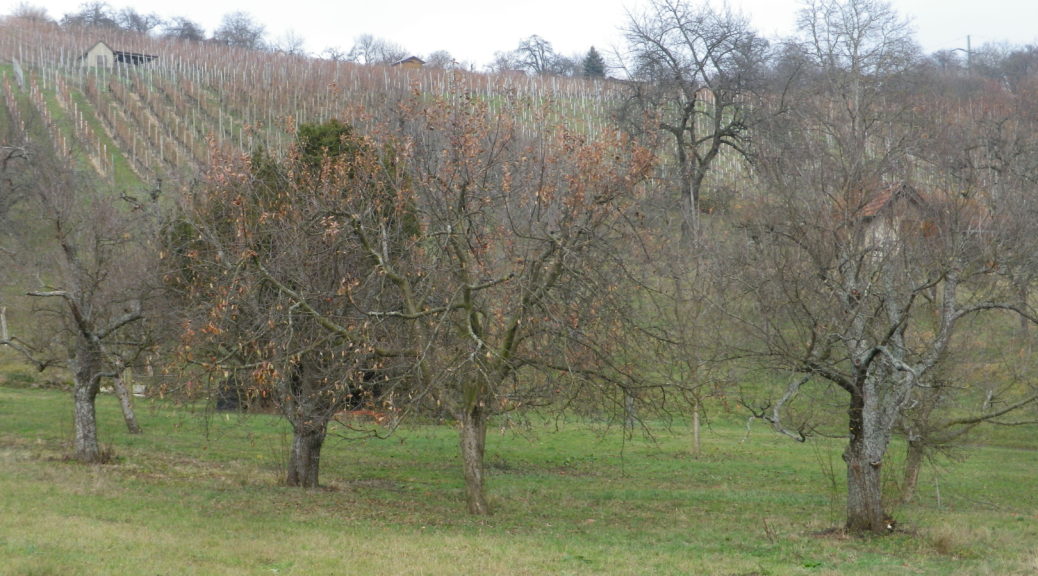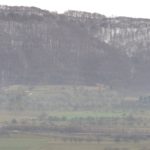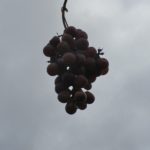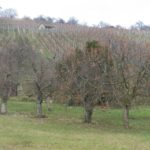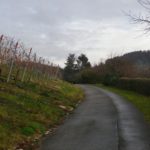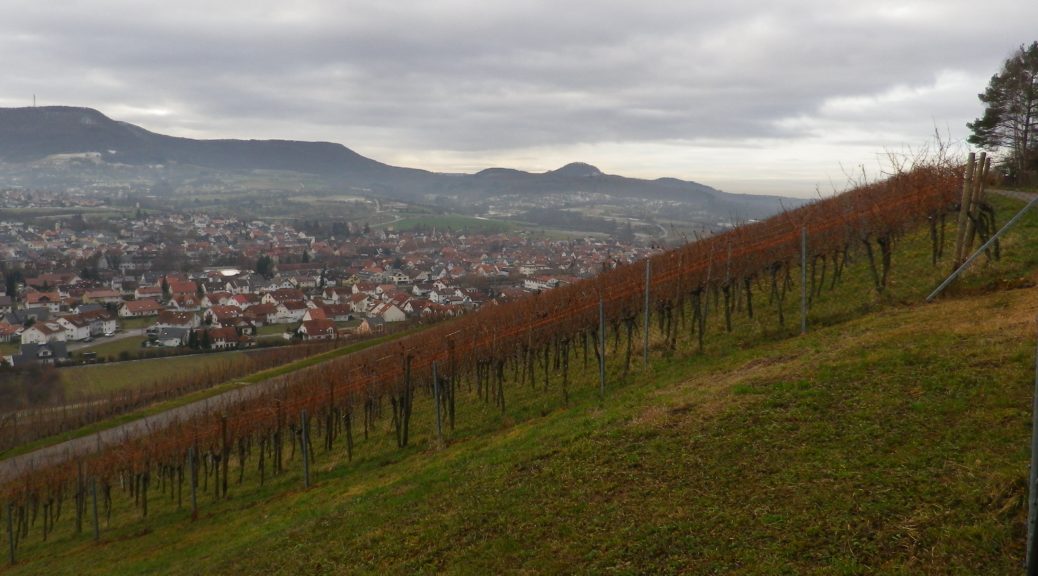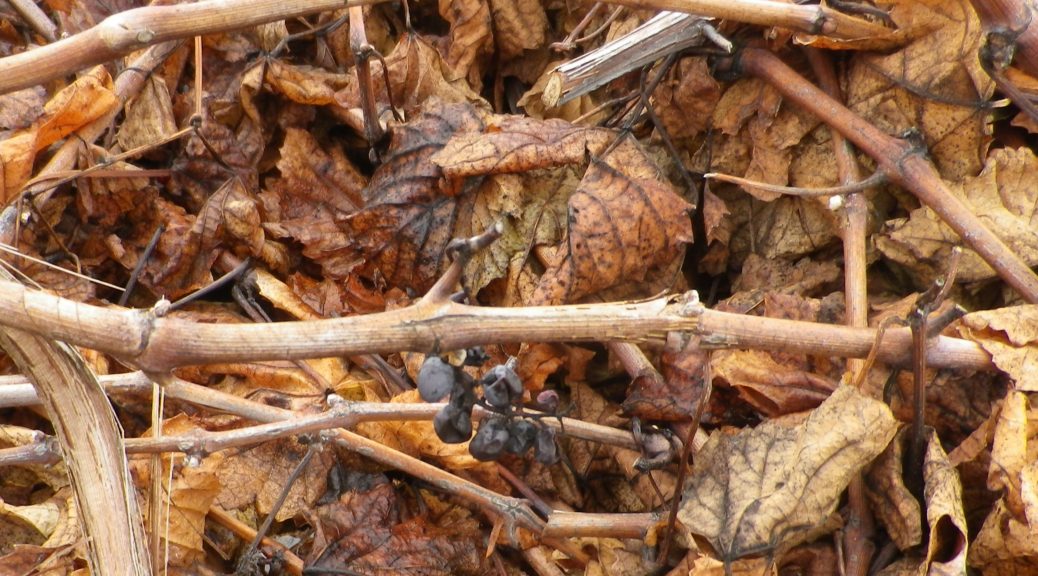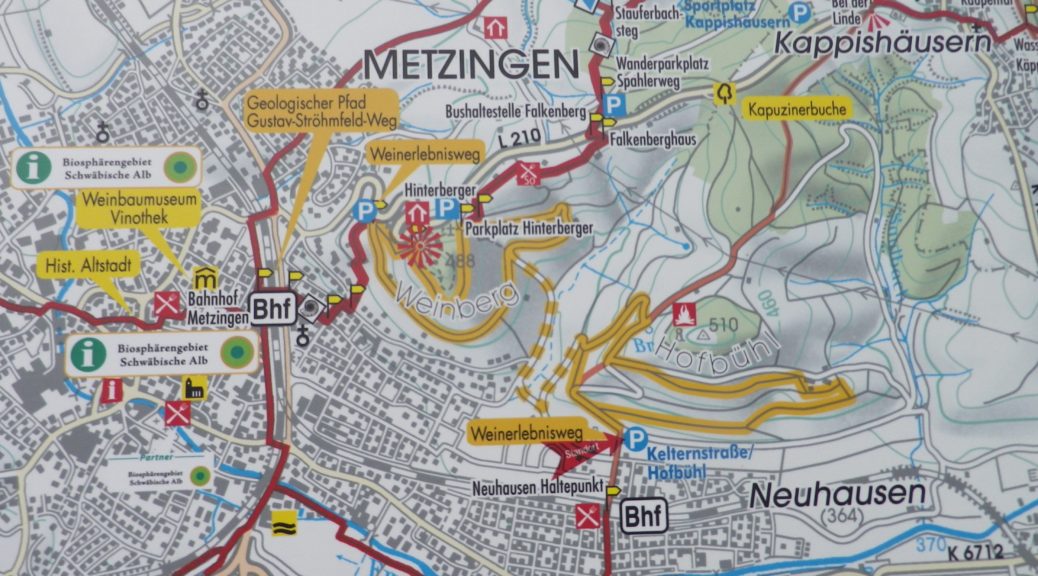Monthly Archives: December 2020
Dark Days, December Delights
December again – the month of short, dark, often rainy or snowy days. The hikes in Germany and Alsace in December are necessarily short due to limited daylight hours, and unmitigated fog which rarely lifts before noon. I can look forward to winter hikes in Germany and Alsace though because of the abundance of cheerfully lit Christmas Markets – a wonderful way to dispel the cold and dark, and embrace the joy of the season.
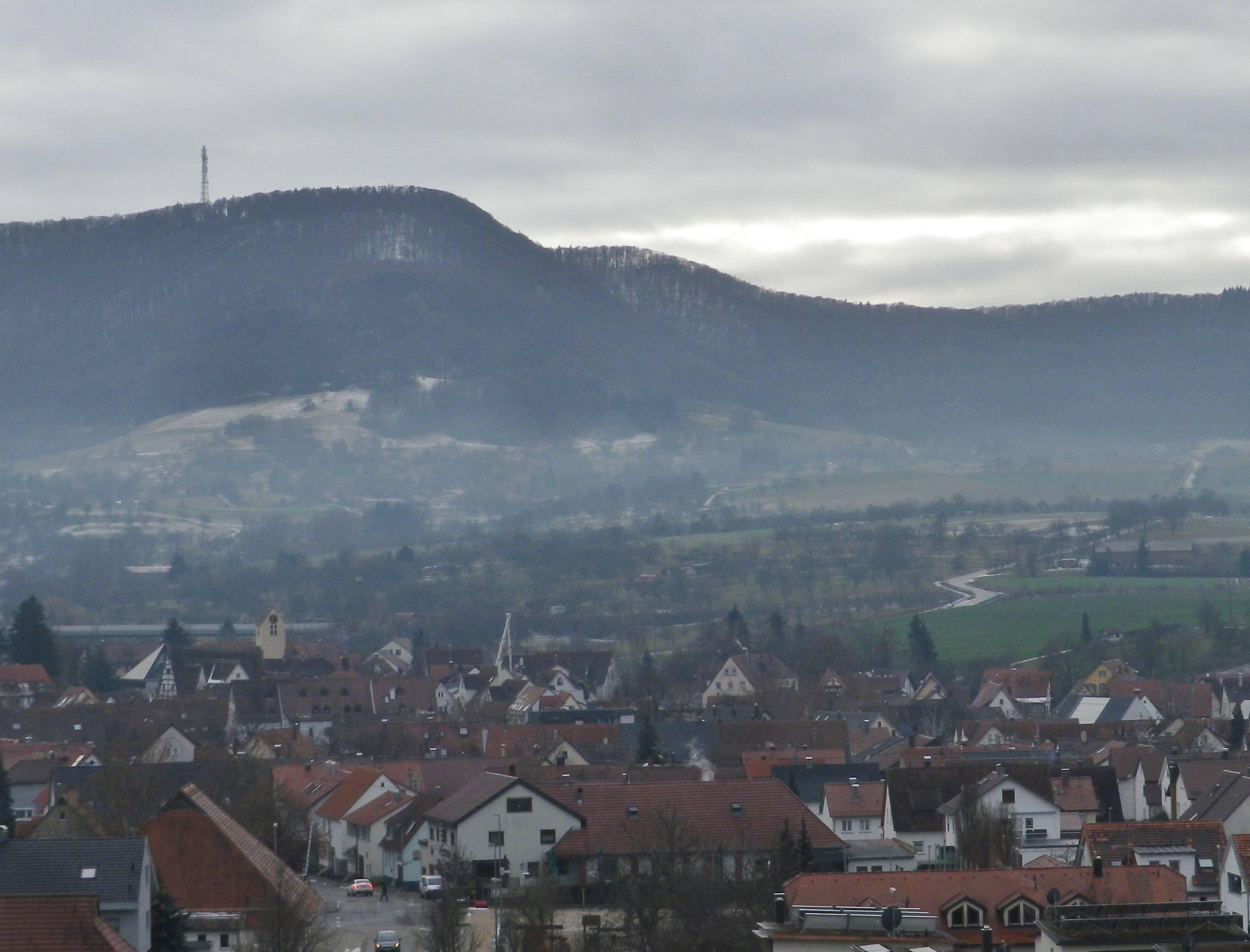
This hike, done at noon on the shortest day of the year, was not too far from the old university town of Tuebingen, which has its own Christmas Market. It was in the vineyard areas of Metzingen, in the hills above the town. This is not far from the Neckar Valley region, before the Neckar meanders through Stuttgart. Nonetheless, there is a very rural feel to this town, and the surrounding countryside forms part of the Schwaebische Alb, a hilly/mountainous region in southern Germany set between the upper Neckar, and the young Danube rivers.
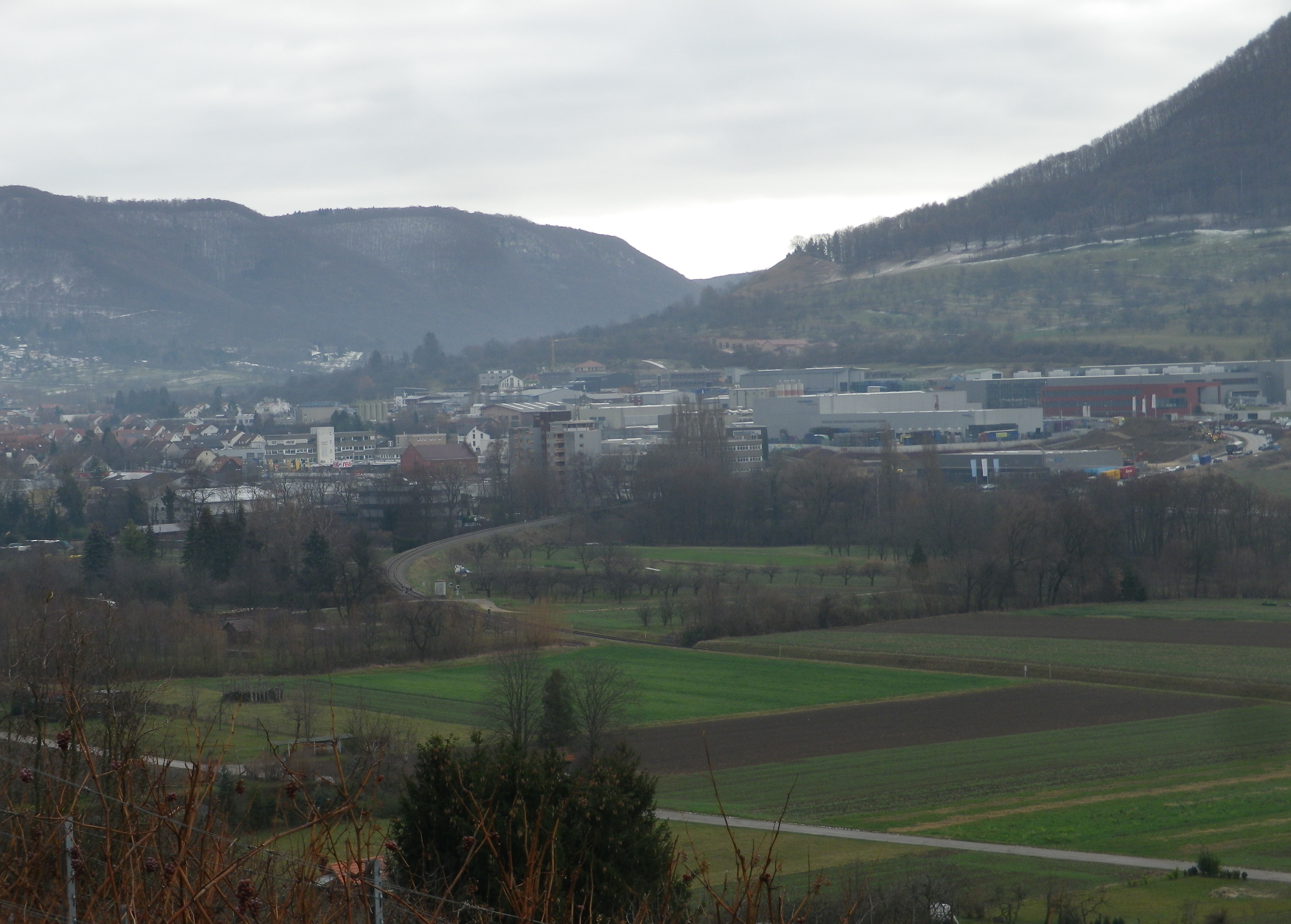
However, the vine-covered hills on the edge of Metzingen are not very high, and hard-packed surfaces traverse the wide slopes. This makes the itinerary to the top suitable for families with young and old alike, and those looking for an easy stretch of the legs. (Be sure to follow the itinerary, which is counterclockwise because the descent is more direct, hence a bit steeper.) The whole Weinerlebnisweg Metzingen-Neuhausen trail may be completed in an hour or so; a bit longer if you read the wine-education boards along the way, and take some time to enjoy the benches, and even a hammock, from which hikers have wide panoramic views of the area south and west.
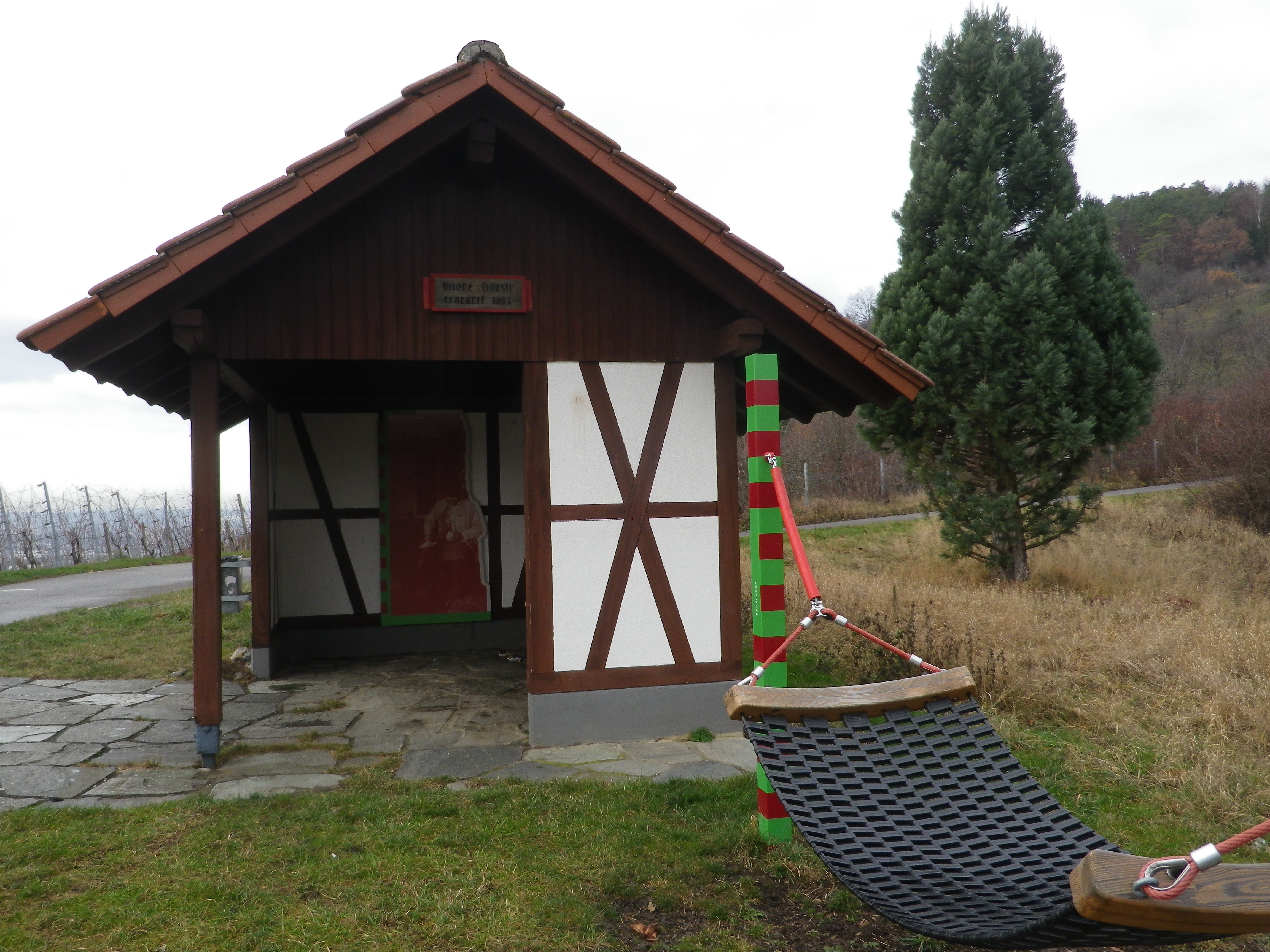
Another nice feature of this trail is that it connects with a sister trail, the Weinerlebnisweg Metzingen, via a connecting loop. (The top half heads out from, the bottom half leads to, the trailhead in Metzingen-Neuhausen.) The two parts of the loop segment are a nice addition. They provide scenic variety, as much of this loop passes through a saddle between the vineyards of Metzingen and Metzingen-Neuhausen. Instead of vines, fruit trees, nut trees and fields predominate here. The trail passes over the little Spalerbach creek before it enters Metzingen.
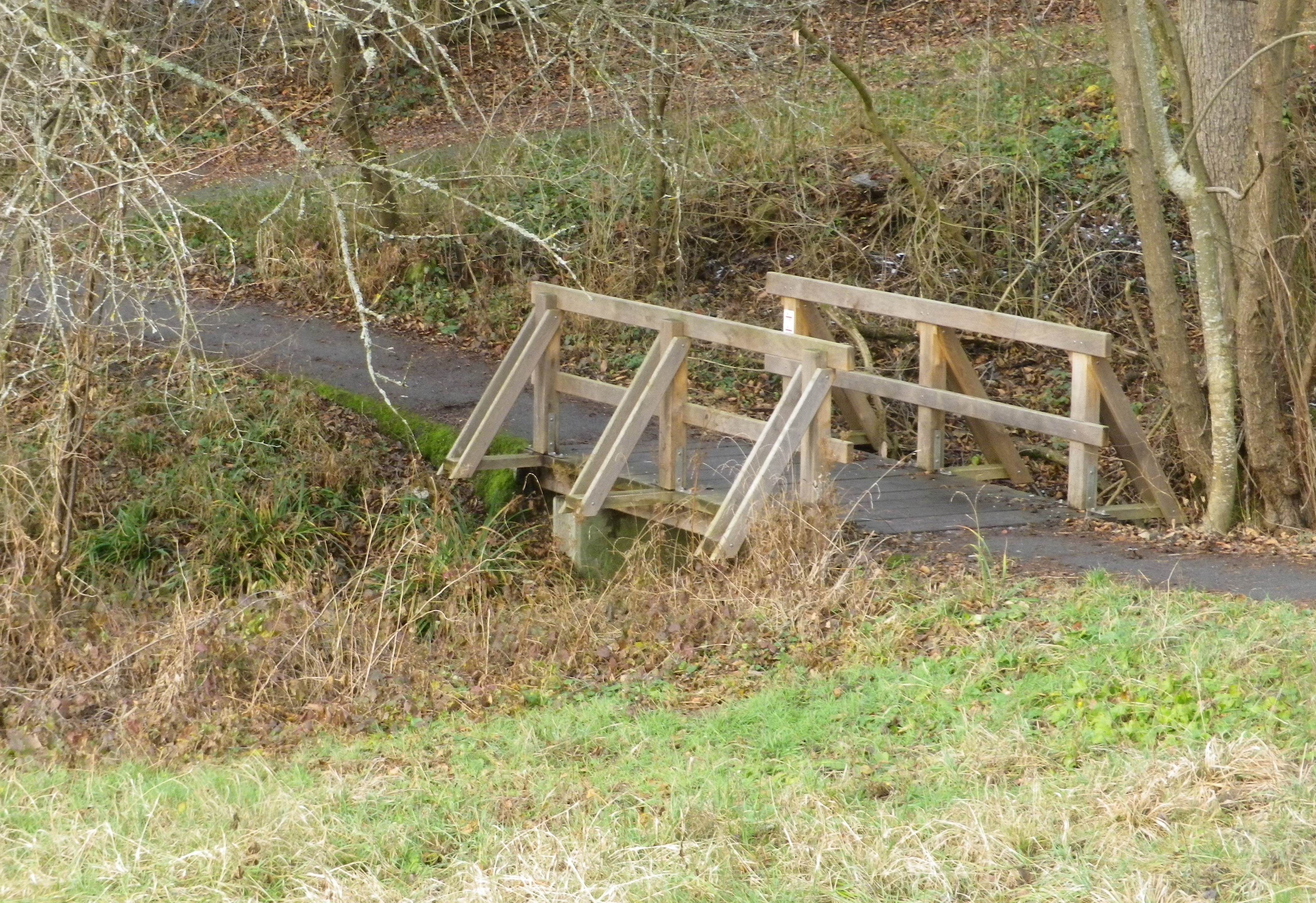
The Weinerlebnis Metzingen is similar in design to the Weinerlebnisweg Metzingen-Neuhausen trail in that it traverses the vineyard slope outside Metzingen. There is an added attraction here though. While vintner huts were conspicuous by their absence on the earlier trail, here they are found in abundance. These little huts serve as storage and shelter in bad weather. Often decorated a bit, they are unique and individualized contributions to the scenery along the trail.
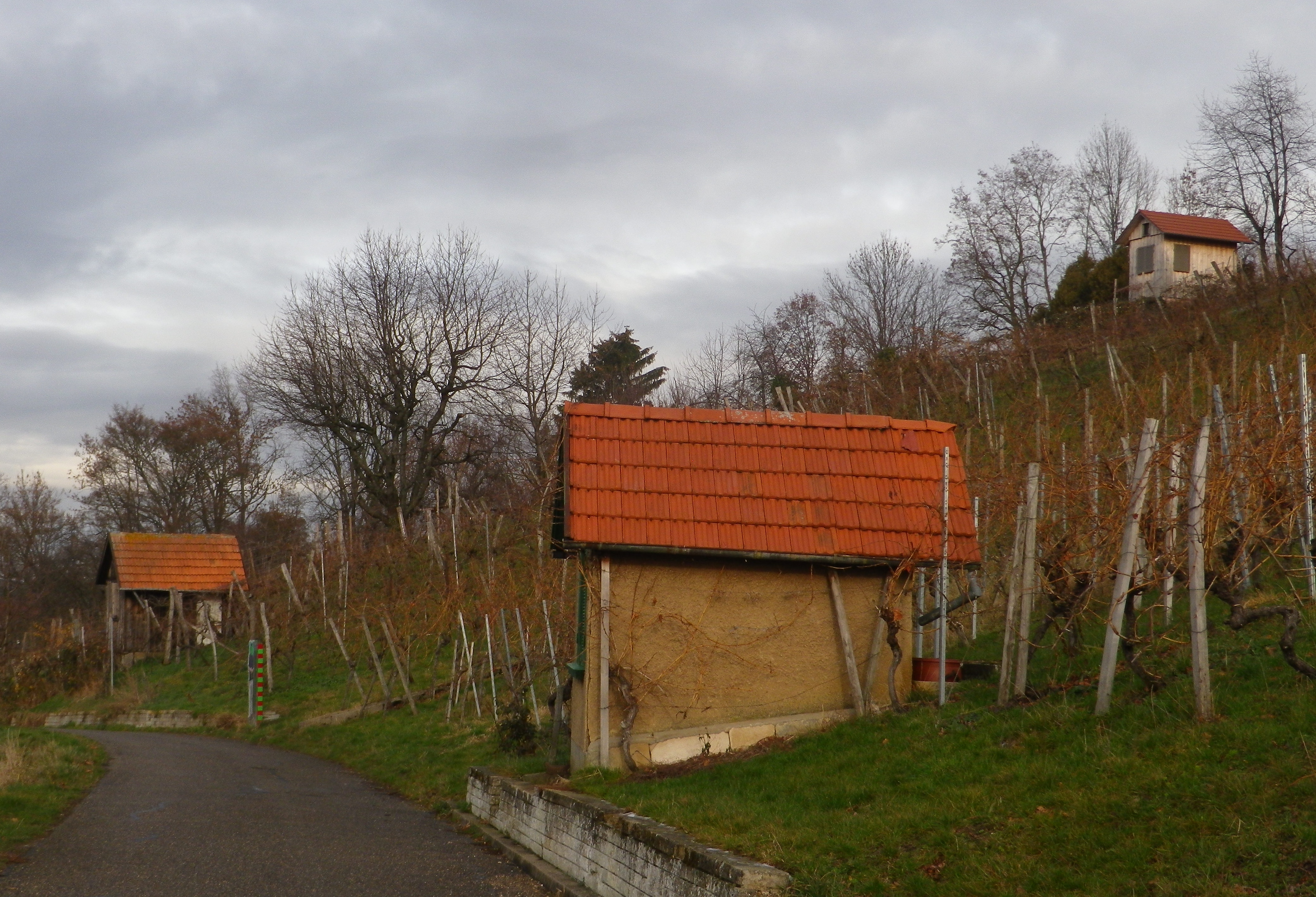
Although I didn’t do it, shortly after the Metzingen Weinerlebnisweg Parkplatz (parking area), once at the bottom of the vineyard, a quick dogleg right, then left onto Neuffener Strasse, continuing beneath the under pass to Nuertinger Strasse, will lead to the Stadthalle and the nearby Kelternplatz. The town has carefully maintained this square devoted to Metzingen’s wine-making history. It is filled with seven half-timbered structures that formerly contained huge wine presses. Now, these building contain, among other things, a vinothek, a wine-museum, a wine-makers house and opportunities to buy or taste the local wines. I visited this square on a previous visit and can say that it is worth a detour. (See the Nutshell here for more information.)
After passing through the Metzingen vineyards, the trail rejoins the connecting loop’s lower part. From there to my start point in Metzingen-Neuhausen, it was a pleasant, albeit very easy, walk, which I completed in the short time that spanned the lifting of morning fog, and the falling of evening’s darkness. While it may not have been a challenging trail in any sense, it was a great local itinerary that drew attention to the centuries old tradition of wine-making in Metzingen and Metzingen-Neuhausen.
Wine Notes: Wuerttemberg’s Remstal-Stuttgart District
What I Learned
While set geographically speaking close to the Upper Neckar valley, the vineyard area by Metzingen and Neuhausen does not fall within the wine district of that name. It falls instead within the Remstal-Stuttgart wine district of the Wuerttemberg wine region. This district includes nearby Neuffen and Beuren, as well as the vineyards in the Stuttgart and the greater Stuttgart area, as far west as Leonberg, and as far north as Winnenden. By Metzingen and Neuffen, it is easy to see that the area was once volcanic. Indeed, volcanic elements are partly present in the soils in this general area (although not so in Metzingen), which consist of marl and clay.
Historically, wine making figured largely the local economy and culture. The Kelternplatz in the center of historic Metzingen which once contained seven large wine presses, showcases wine making’s importance to the town and nearby village of Neuhausen. Both contain sections of the vineyard parcel called the Hofsteige.
The local cooperative Winzergenossenschaft Metzingen-Neuhausen produces Schillerwein. Of local (broadly speaking) tradition, Schillerwein is a cuvee of red wine blended with white wine. This practice was noted as early as the middle ages in Wuerttemberg. More than one grape varietal of either red or white grapes can be in the mix, resulting in an extremely large variety of wines to experience. The rose-colored wine blends made by local wineries are often favorites at local fairs or festivals, and in wine taverns (Besen), where they are served cool on a hot summer day. It is truly a local, Wuerttemberg wine experience not to be missed.
Another popular red wine cuvee in the Wuerttemberg region is the Schwarzriesling with Spaetburgunder. It is a combination of Pinot Meunier and Pinot Noir. Needless to say, each winemaker’s cuvee is unique and uniquely delicious. Another “must try” when in this area.
What I Tasted
2017 Mueller-Thurgau, Metzinger Hofsteige, Qualitaetswein, Trocken, Weingaertnergenossenschaft Metzingen Neuhausen (Metzingen): A dry white wine with medium gold color; green apple and citrus nose, with green apple and citrus flavors, high minus acidity, with a tart finish.
2017 Schwarzriesling mit Spaetburgunder, Metzinger Hofsteige, Qualitaetswein, Halbtrocken, Weingaertnergenossenschaft Metzingen Neuhausen (Metzingen): A dry red wine cuvee (Schwarzriesling/Pinot Meunier and Spaetburgunder/Pinot Noir) with medium ruby color; cherry and spice nose, with cherry and spice flavors, with a hint of leather; medium tannins, medium body, and a smooth finish
Schillerwein, Metzinger Hofsteige, Deutscher Qualitaetswein, Halb-trocken, Weingaertnergenossenschaft Metzingen Neuhausen (Metzingen): A dry rose wine with medium salmon color; with cherry nose, and green apple, cherry, and honey flavors; well balanced, with the honey on the finish.
Weinerlebnisweg: Trail in a Nutshell
Trail Name: Weinerlebnisweg (Metzingen und Neuhausen)
Trail Type: Two short distance circuits conjoined by a third circuit between them; well-maintained and almost exclusively paved, a form of marking/signage is along parts of the trail
Length: 8.3 km/5 miles
Convenient to: Tuebingen or Stuttgart, Baden-Wuerttemberg, Germany
Marking:
Alternate red and green squares (often on tall posts) mark learning points along the trail, although these do not necessarily point the way to the next point.
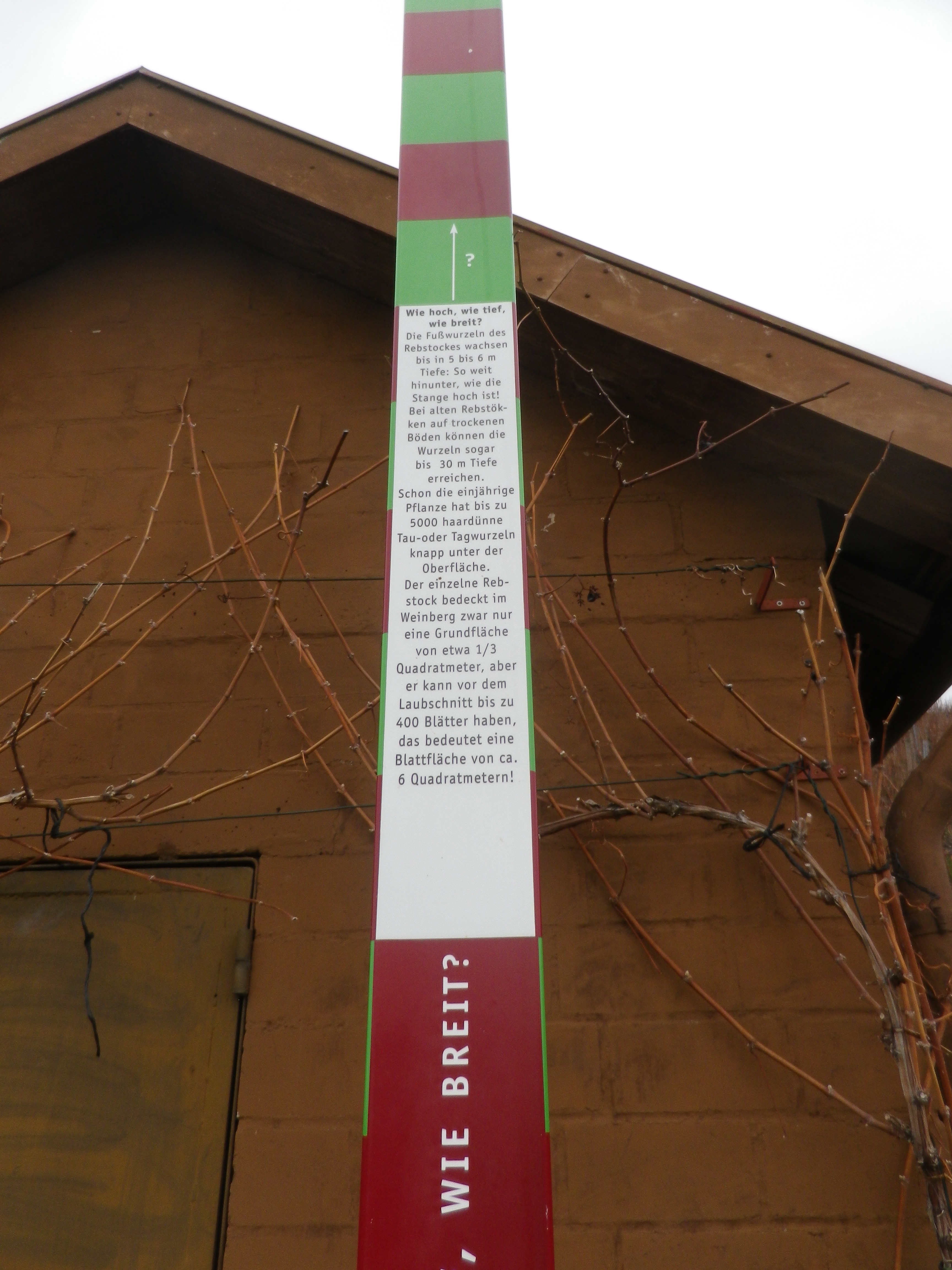
Trail Description: A relatively easy itinerary up and down hills and dales, with learning boards, rest stops and scenic lookouts along the way, through agricultural and woodland settings, above a moderately urbanized area.
Trailheads:
Kelternstrasse, Neuhausen (for the Metzingen-Neuhausen circuit)
Am Gruenen Haeusle, Metzingen (for the Metzingen circuit)
Parking:
Kelternstrasse, Metzingen-Neuhausen (for the Metzingen-Neuhausen circuit)
Elsa-Braendstroem-Strasse (30), Metzingen (for the Metzingen circuit)
(Both are right on the trail)
Public Transportation Options:
Rail: DB ‘s (Deutsche Bahn) regional trains conveniently connect Metzingen with Tuebingen and Stuttgart
Suggested Stages:
Hikers can choose to complete one circuit, (such as the Neuhausen circuit for approximately 3.25 kilometers/2 miles), then return another day to complete the Metzingen circuit, which is just a bit shorter.
Trail Itinerary-Reference Points: (Counterclockwise)
Metzingen-Neuhausen: End of Kelternstrasse, follow the uphill path into the vineyards, take the path to the right, and follow along the vines (you will see education boards along the way), turn left, uphill, to a rest hut with a hammock, and follow back along the hillside, climb up to the Hofbuehl sign, follow a yellow circle over a foot bridge to the Hofbuehlbrunnen (a fountain), to Steinerweg; Metzingen: Through vineyards, to the parking spots on Elsa-Braendstroem-Strasse, turn left, downhill and curve around left to follow along the lower vineyards above Metzingen, back onto Steinerweg, and downhill, curving southeast to the start point in Metzingen-Neuhausen
Representative Trail Photos:
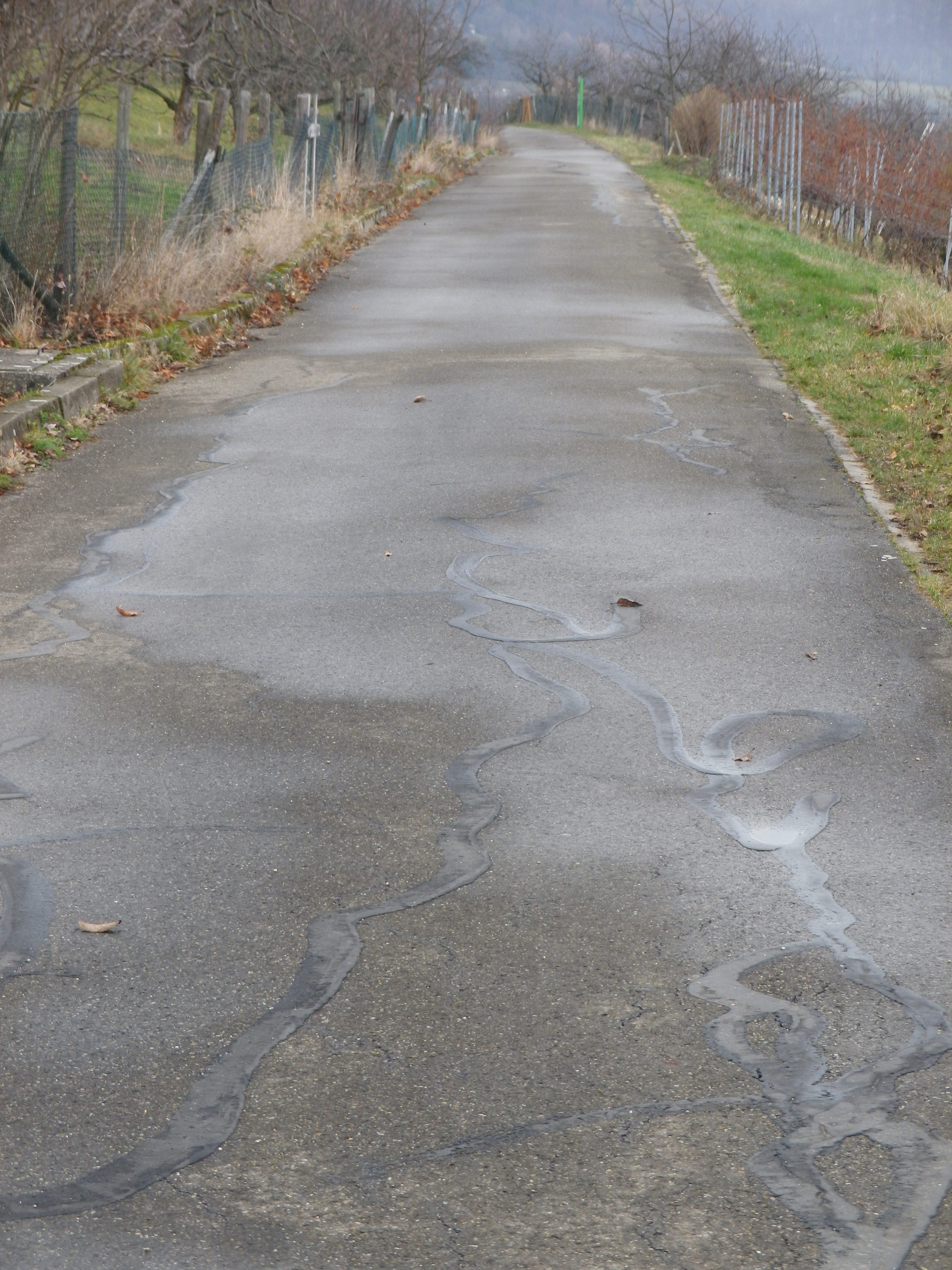
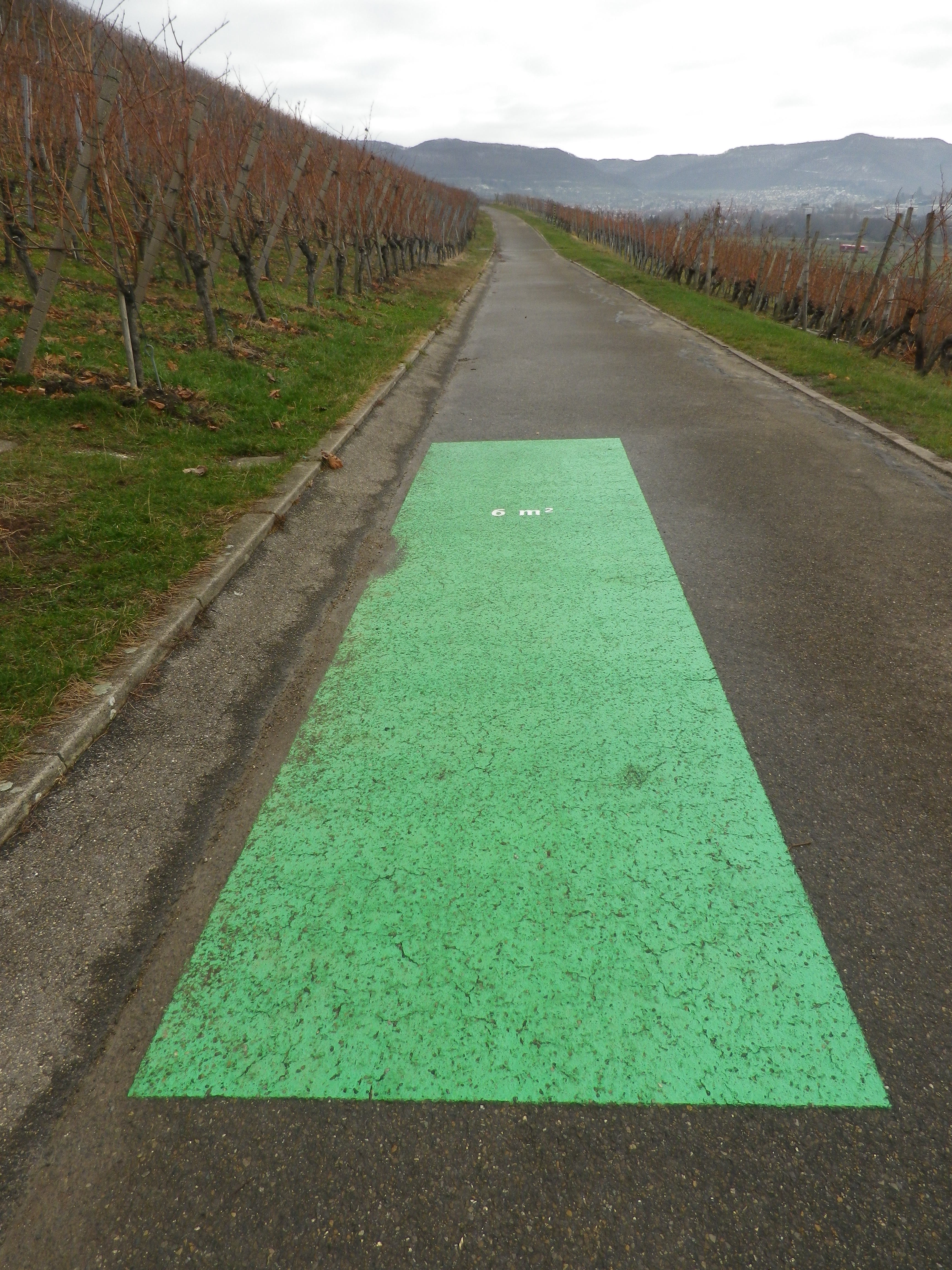
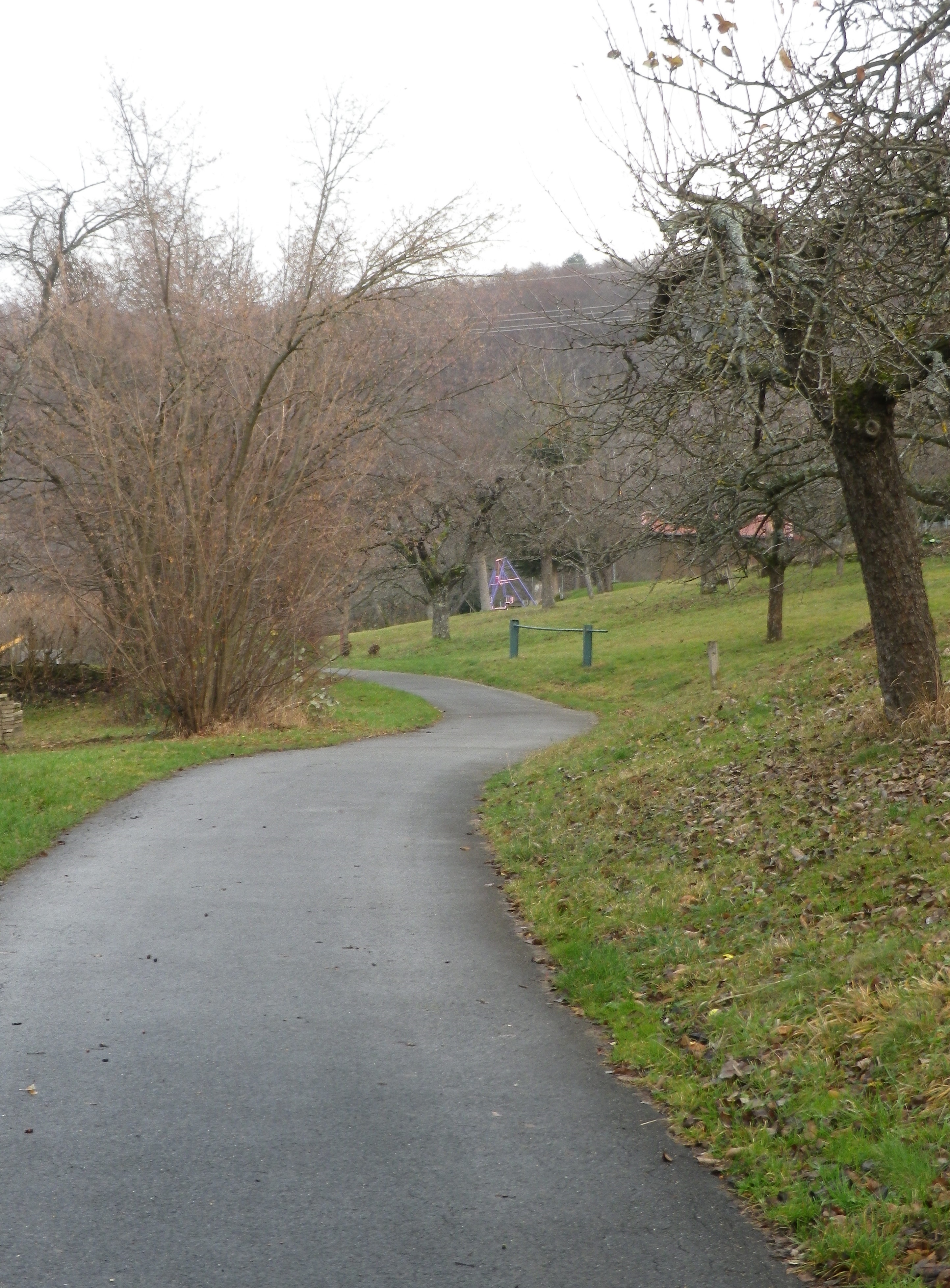
Restrooms: None observed!
Attractions on or near Trail:
Metzingen: On Kelternplatz there is a collection of half-timbered buildings formerly housing old wine presses, a museum dedicated to wine-making in the area, a Winemakers House, and a vinothek and wine bar.
Tasting along the Trail:
The local cooperative WGS (Winzergenossenschaft) Metzingen-Neuhausen is on Kelternplatz, Metzingen
The Wengerterhaeusle (“Winemakers House” listed above) offers regular public wine tasting events. Check the events schedule (“Veranstaltungen”) at https://weinbaumuseum-metzingen.de/
Alternative Options:
Biking: The 353 kilometers/219 miles-long Wuerttemberger Weinradweg passes through Metzingen. The southern portion often follows along the Neckar River, one of Germany’s wine rivers, before heading east and north at Heilbronn. See the Nutshell here.
Additional Information:
Regional: https://www.schwaebischealb.de/
Trail specific: https://www.metzingen.de/willkommen
Comments:
The connecting circuit between the two wine circuits adds a total of about 2 kilometers to whichever circuit is hiked.
